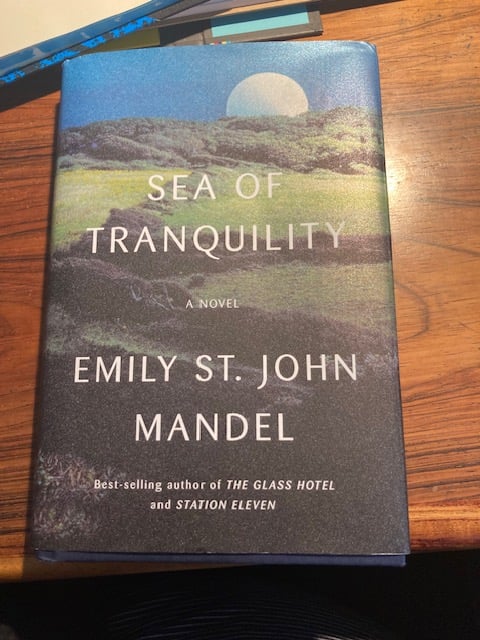#8 Time Travel as a writing technique?

#8 Time Travel as a writing technique
I'm back in a phase of waiting to hear what people think about the latest draft of my novel-in-progress, and I've been thinking about what I might write next. While THE RECENT DEAD (current working title) is a ghost story and supernatural thriller, I'm thinking my next novel will combine a ghost story with a time travel narrative. Ask me how I'm getting on with it in about five years. There's a joke in there somewhere but I can't quite land it.
Join us for my research centre's next webinar on AI and Writing and Publishing - 25 March at 16:00 UK time which hopefully helps out those of you in time zones to the west. We'll be talking about the impact of LLMs on teaching creative writing. Sign up here.
My favourite novel about time travel is Emily St John Mandel's SEA OF TRANQUILITY which came out in 2022. This is a beautiful book that ranges across time from the year 1912 to 2401 and back again. Mandel breaks so many so-called rules in this book, it's astonishing. Readers don't understand who the time traveller is until more than one hundred pages through the story. We are introduced to multiple sets of characters in multiple settings only to abandon them for new characters in new settings. Chapters set in the far future do not focus on technology, but rather there is just enough technology for the reader to grasp how these characters are able to live in colonies on the moon. We hear about the Far Colonies - outposts beyond our galaxy - from time to time, but the most information we are given about life there comes in a single line of dialogue when a character is asked what the Far Colonies are like:
'They're beautiful' she said, 'but I didn't like living underground.'
As a fan of the shortish novel (and SoT comes in at a relatively modest 255 pages), this kind of minimalism suits me.

Mandel wrote a wonderfully optimistic post-apocalyptic pandemic novel STATION ELEVEN which came out in 2014, six years prior to the actual pandemic. And SEA OF TRANQUILITY is, in turn, haunted by pandemics including the virus that chases the novelist Olive LLewellyn, one of many key characters in the novel, away from Earth back to her home on the moon where she settles into a very familiar version of lockdown. This is Mandel's great strength as a novelist - combining the familiar with the outlandish and surprising, though I'm sure she couldn't have guessed when she was writing STATION ELEVEN that life during a pandemic would in any way become familiar to us all.
Mandel's writing is full of light and air, it floats across the page drawing you in, allowing the reader to make connections across time and place. This truly something to admire and emulate.
Of course you can't write about time travel without also writing about the dead and this is territory I think my next novel will inhabit.
As mentioned above, join us for our next webinar on AI and Writing on 25 March. Our February webinar was fascinating, with Global AI Lead for Pan MacMillan, Sara Lloyd, and CEO of the Society of Authors, Nicola Solomon. Nicola talked about many things, including how AI tools are rapidly becoming part of standard writing practice. Soon much of the text we read will be AI-assisted and this will not be a novelty but a fact of life, as much a part of our processes as Word docs and predictive text.
Thanks for reading, and please share this newsletter with anyone you think might like it!